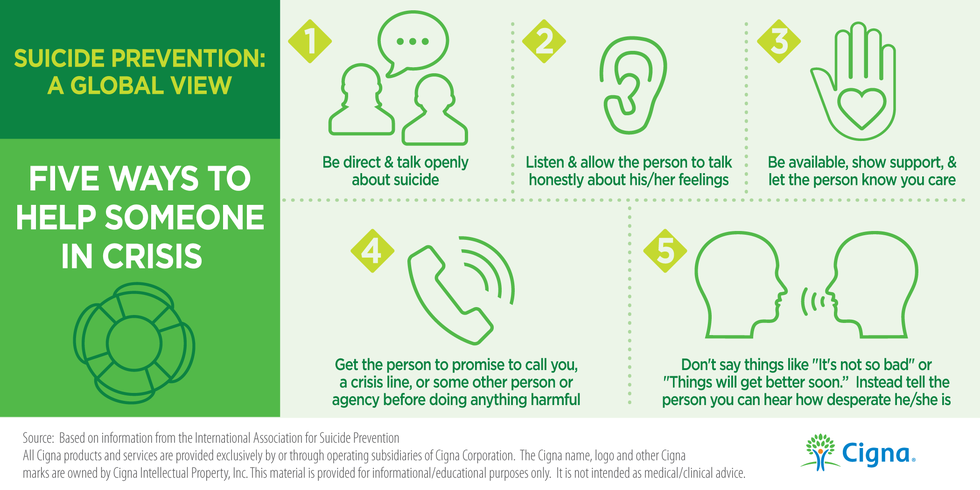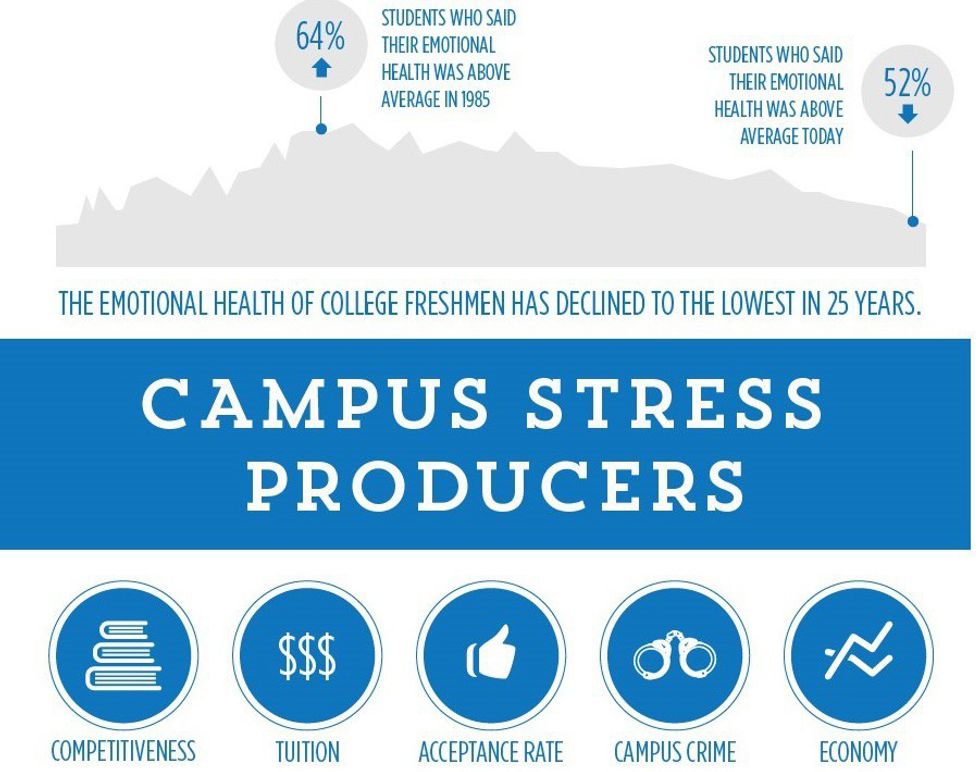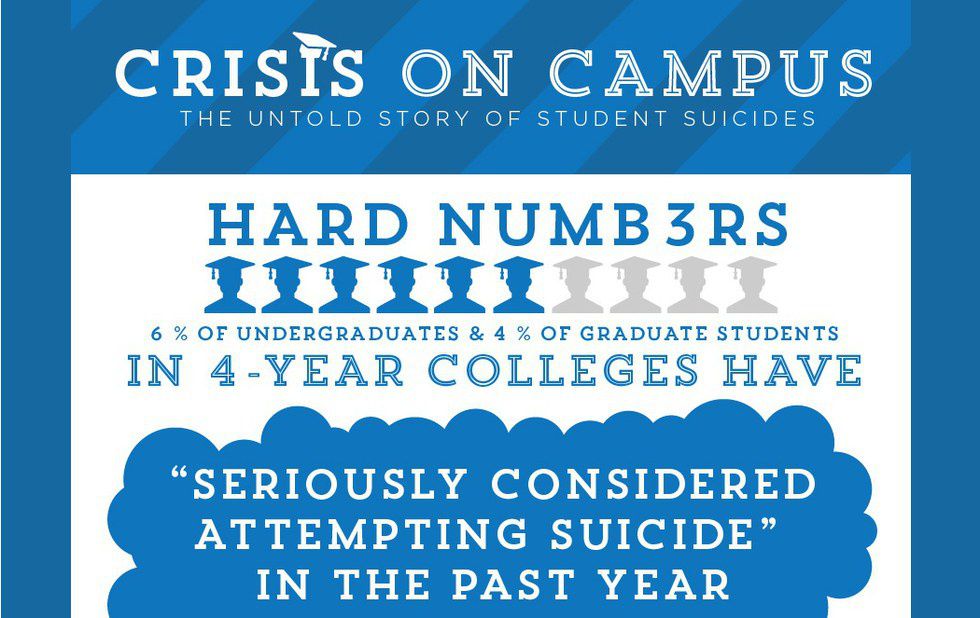This is a topic that no one wants to talk about, and no one wants to hear about. Realistically, it's something that many people don't even really know about, or at the very least they don't know the rate at which it is happening all over the country on college campuses. Regardless of how much college authorities want to hide or not acknowledge what's happening on their campuses, there's a major news flash that everyone truly needs to know about – it's happening, and it's unfortunately not going to stop happening until we start doing something about it.
The following are some incredibly important statistics that I found from collegedegreesearch.net/student-suicides/. You can find much more information and statistics laid out through infographics at this website.
6 % of undergraduates and 4 percent of graduate students in 4-year colleges have “seriously considered attempting suicide” in the past year—and nearly half of each group did not tell anyone.
3X: The suicide rate among young adults, ages 15-24, has tripled since the 1950s and Suicide is currently the 2nd most common cause of death among college students.
1,100: number of suicides that occur at colleges every year – that’s roughly 7.5 per 100,000 students. 1 in 12: number of college students who have actually made a suicide plan at some point 1.5: number of college students out of every 100 who have actually attempted it.
2X as many young men, ages 20-24, commit suicide, compared with young women.
In the past 50 years, the suicide rate for those age 15-24 increased by over 200%.
12 people aged 15-24 will commit suicide today – that is one about every two hours.
FACT: The emotional health of college freshmen — who feel buffeted by the recession and stressed by the pressures of high school — has declined to the lowest level since an annual survey of incoming students started collecting data 25 years ago.
The percentage of students who said their emotional health was above average fell to 52 percent. It was 64 percent in 1985.
With statistics so terrifying and raw, wouldn't you think that colleges and the people attending them would be working harder to change them? Instead, the majority of administrators at these campuses are pretending that this isn't happening, neglecting to provide any sort of media coverage around these events, and not talking to their students about the problem.
Instead of focusing on something that is affecting such a large number of their students, colleges are focusing more on other ways to improve their campuses – adding new buildings, new cool technology, putting on programs and fun activities. But what's the point of all of those great improvements if their students are suffering from suicidal thoughts? Isn't the point of college to have a wonderful time in a young persons life, filled with a good education and experiences that will shape them as a person for the rest of their lives? What's the point of all of that if their lives end before they even leave college?
Until something changes, suicides on college campuses are going to continue at the current rate. This is unacceptable. As much as college students aren't necessarily responsible for these high rates, it's up to those attending the colleges to push the administration to make a change for the sake of their students lives. Let's stop pretending that this isn't an issue. Here are some things that you can do on your college campus to help support this cause and attempt to change these statistics.

- Spread awareness about it. Get the statistics out to students and faculty members on your campus. That could be as easy as sharing this very article for your peers to see.
- Contact your colleges health and/or counseling center about spreading resources for college students to get mental health help. These can be distributed by different people like club members, RA's and RD's in dorm buildings, even normal students to their friends and roommates!
- If you have a mental health club on campus, such as NAMI on Campus or Active Minds, reach out to them about spreading awareness about the issue. If your college does not have a mental health club on campus, inquire about getting one statred!
- If someone comes to you feeling depressed or tells you that they are having suicidal thoughts, be there for them as much as you believe you can handle. Whether this is just bringing them to other professional resources or being a shoulder to cry on, you can make a major difference in small ways.
























